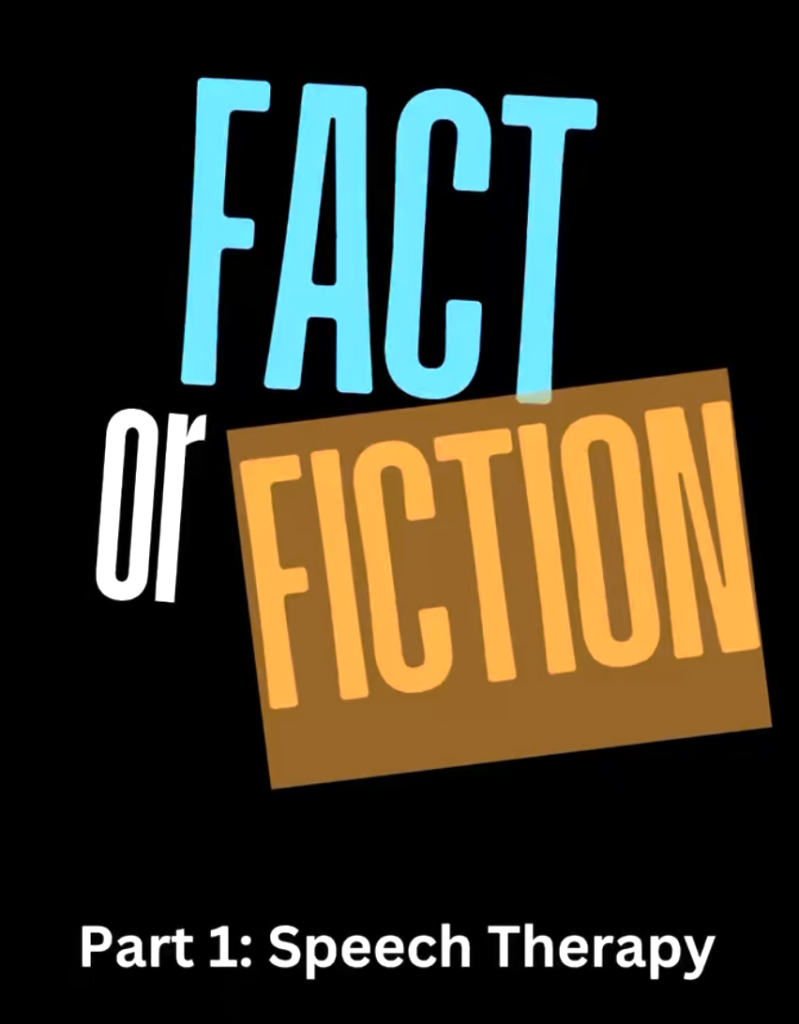
Fact or Fiction?: Speech Therapy for Kids
By Team Therapy Smarts
What started as a standard check-up has taken an unexpected turn, as your pediatrician makes a recommendation for speech therapy for your child. Here at Therapy Smarts, we’ve spoken with plenty of parents about that pivotal moment. While their emotions ranged from surprised to reassured, the very first thing they did upon leaving the doctor’s office was often the same — going straight to Google.
As a parent, it’s understandable to want to know as much as possible about any potential diagnosis your child may experience. Unfortunately, misinformation is everywhere — and it thrives on exaggeration, and outright fiction. So, if you’ve recently received a referral, or are considering a speech therapy evaluation for your child, our therapists are here with some of the major facts (and fictions!) of the discipline.
Fiction: My Child’s Delay is My Fault
Let’s debunk parent-shaming first and foremost— if your child is experiencing a delay, it is not your fault. There are plenty of rumors swirling around that attempt to place the cause on the parents, each of which is untrue.
One popular myth insists that speech is delayed because the parent used “baby-talk” for too long. In fact, using a higher-pitched tone and simple phrases is more likely to engage your baby — and at a young age, any communication is always better than none. Using baby-talk does not make it any likelier that your child will experience a speech delay.
On the opposite end of the spectrum, another parent-shaming misconception is that teaching your child multiple languages will cause a speech delay, because it is “too much” at once. This is untrue. Children have a greater capacity to learn new sounds, words and meaning within their youngest years and are no more likely to develop a speech or language delay. Ultimately, learning more than one language will benefit them.
Fiction: My Child Will Grow Out of a Speech Delay
For every parent concerned about their child’s language development, there’s at least one family member, friend or neighbor with a story about a child that “just grew out of it.” While these people often have good intentions, and some children will grow out of these delays, every child is different, and it is impossible to know which camp your child will fall in.
While the “wait and see” approach may seem tempting, early intervention is critical, particularly for language delays. Since reading and language skills build on each other, the longer these delays go without intervention, the further behind a child will fall on their critical milestones. Having the expert opinion of a speech therapist will give you answers and peace of mind.
Fiction: Speech Therapy is Only For Stutters or Lisps
Improving communication is the major goal of all speech therapists— and while stutters and lisps are one reason this skill may be delayed for a child, they are far from the only root cause. Children may be referred to a speech therapist for a diverse array of conditions, including:
Apraxia: A neurological condition where the brain cannot sequence the sounds & motions of the mouth to communicate what a child intends.
Dyslexia: A learning disability primarily impacting the ability to read and spell.
Feeding Disorders: Conditions causing a child to struggle with chewing and swallowing
Voice Disorders: Conditions that affect the quality of a child’s voice (hoarse, breathy, strained).
